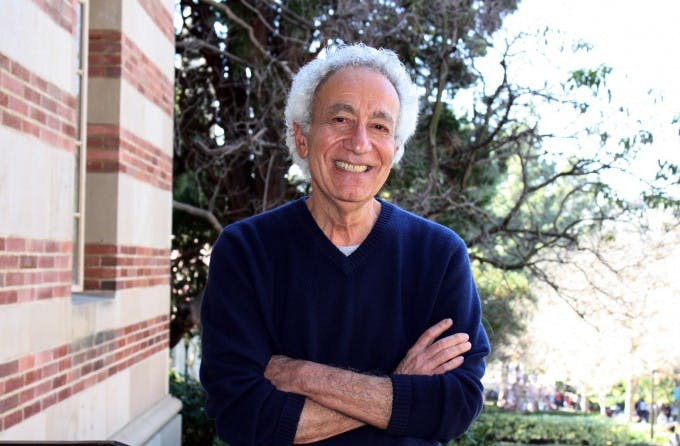Professor of Education Mike Rose has published a commentary, “Why Trump Alarms So Many Educators,” in The Washington Post’s “Answer Sheet” education section. Rose, whose books include “Possible Lives: The Promise of Public Education in America,” describes the use of “a language of education to defend the neophyte president’s performance” by President Trump’s supporters in juxtaposition to his apparent lack of knowledge about the office and its issues.
“Many of us have spent our professional lives helping students of all ages think more deliberately and carefully,” Rose writes. “Learning new things and checking what you know is central to this work, as is developing strategies to find something out when you don’t know it. To have all this violated daily is an affront to education — a statement by example that the fundamental processes of learning and knowing do not matter.
“A lot of us in education have denounced Trump for his appointment of Betsy DeVos as education secretary and for the anti-public education policies the two of them champion,” posits Rose. “But there is another reason we educators, regardless of political affiliation, should be deeply concerned about Trump’s occupation of the White House: his continually evident lack of knowledge and the significant defects in his thinking — and his nonchalance about both.”
Rose’s 2005 book, “The Mind at Work: Valuing the Intelligence of the American Worker,” shines a light on the multiple intelligences employed by so-called “blue collar” professionals. He underscores the importance of a flexible body of knowledge to tackle any job, from surgery to leading a nation.
“Good electricians as well as good surgeons acquire a body of knowledge and use it flexibly in different situations with different features,” writes Rose. “This flexibility requires an awareness of what one knows, what to do when one doesn’t know something, and when experience in the field might require a revision of what one knows. When surgeons or electricians display a lack of such awareness, we consider them incompetent — and possibly dangerous.
“These observations apply to both teachers and their students, from the primary grades to the graduate seminar. If an education involves more than the most mechanical rote learning, then by definition it involves consideration of what we’re learning, how we’re learning it, and how to assess what we’ve learned. A good education helps us be more deliberate thinkers and think about our thinking.”
To read, “Why Trump Alarms So Many Educators” in The Washington Post, click here.
